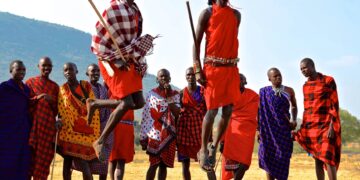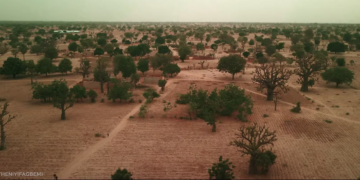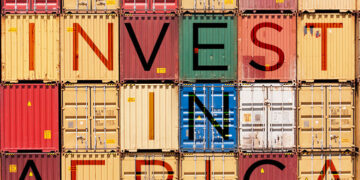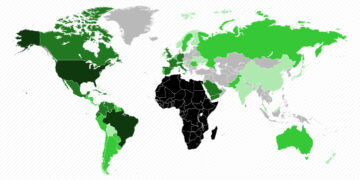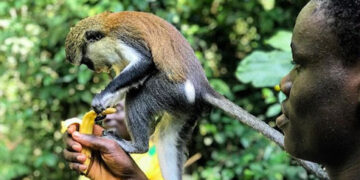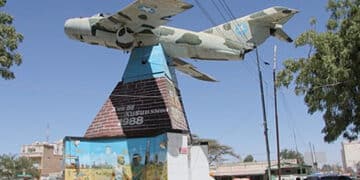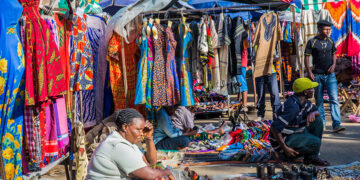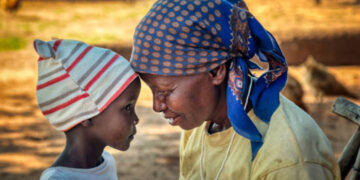The African Diaspora represents a massive and underleveraged opportunity in the sustainable socio-economic development of Africa. This article highlights the magnitude of those potentials and how to ensure their optimal realization.
The African Diaspora represents a massive and underleveraged opportunity in the sustainable socio-economic development of Africa. Based on this realization, the African Development Institute of the African Development Bank (AfDB) Group is hosting a policy dialogue on “Development Without Borders: Leveraging the African Diaspora for Inclusive and Sustainable Development in Africa” on the 1st and 2nd of December 2022. The keynote speakers are Dr. Akinwumi Adesina, President of the AfDB Group, and H.E Moussa Faki Mahamat, Chairperson of the African Union Commission.
Facts to Consider
More than 20 million Africans lived outside the region as of 2020, according to the World Migration Report, and 11 million of these African emigrants live in Europe. Further, 70,000 skilled professionals emigrate every year in search of better economic opportunities, according to the African Union.
The emigration wave is even stronger in countries like Nigeria, where further deterioration of the economy and worsening insecurity concerns, are driving an en masse migration of youths and skilled professionals, especially in the health and tech industries. This brain drain has led to a massive depletion of Africa’s limited human capital resources. It has, understandably, become a major concern, since the emigrating Africans are sometimes the crème de la crème of their industries. However, there’s a debate that this zero-sum viewpoint is not entirely accurate, as it fails to describe the whole picture.
Both Sides of the Coin
Africa has limited opportunities for its abundant youthful workforce. For perspective, about 10 to 12 million youths join the workforce annually, but only about 3.1 million jobs are created, leaving up to 75% of the working-age population unemployed, according to the AfDB. When you throw in the fact that Africa’s population is booming, this percentage is likely to increase, except job creation expands rapidly.
On the other hand, evidence suggests that Africans excel in their host countries, and the meteoric growth in remittance inflow indicates this. Between 2010 and 2021, remittances jumped from $37 billion to $95.6 billion, according to the World Bank. Also, the Diaspora reportedly saves an estimated $53 billion annually, according to the International Monetary Fund. These figures solidify the claim that the African Diaspora has formidable but underutilized potential that can be leveraged for Africa’s development.
Instead of guilt-tripping emigrants and lamenting about the brain drain, African governments need to consider leveraging the economic and intellectual gain of the Diaspora in forging a bright new future for Africa.
Remittances are the most apparent impact of the Diaspora on the African continent, but they are not the only contribution they can make towards Africa’s development. Below are three specific ways African governments can leverage the Diaspora to accelerate Africa’s pace of development.
How African Governments Can Leverage the Diaspora
1.Enhance the Development Potential of the Remittances
The $95.6 billion inward remittance figure quoted earlier represents formal remittance flows only. The informal (unrecorded) remittance flows are estimated at 35-75% of recorded flows. If the surge of inward remittances in the past decade is any indication, one can expect the remittance flows to continue on their upward trend. Unfortunately, their optimal development potential has yet to be fully realized, as most of the remittance money is used for consumption, not development.
About 25% of remittances is often invested in projects that will foster development in areas such as agriculture, business, real estate, education and health. The remaining 75% is spent on subsistence, according to estimates from the Africa Migration Report.
Admittedly, remittances are private sources of funding, and policymakers cannot determine how individuals spend their money. However, public policy plays a crucial role in creating an enabling environment that optimizes the volume and use of remittances. For instance, remittance-driven investments are more likely to occur, if the amount of remittance received is higher. And estimates suggest that lowering the transfer costs, “to the 3% goal agreed upon in the Sustainable Development Goals (SDGs), would lead to an additional $4 billion per year in diaspora remittances in Africa,” according to the African Development Bank.
2.Encourage the New Dynamic of “Brain Circulation”
Brain circulation is a growing view that the knowledge gained by skilled immigrant professionals, can benefit both the host and home countries. In other words, the immigration of skilled workers doesn’t have to be zero-sum.
“Significant numbers of Africans abroad are highly skilled in areas that the continent severely lacks,” says the World Bank. Leveraging this knowledge can help to close the widening skills gap between African professionals and their contemporaries in developed nations.
Although African-educated professionals are trooping off the continent by the thousands, they do not sever their ethnic ties to their home country. And these professionals “have shown significant interest in capacity-building and skills transfer partnerships with their home countries,” according to the World Bank’s reports.
Though intuitive, this brain circulation perspective is rare in economic discussion, but it is an empowering and valuable perspective to adopt. If a sizable amount of Africa’s best minds are leaving the country, and there is evidence these individuals desire to contribute to the continent’s growth, then the governments should create conditions that enable professional networking, and information exchange, between the Diaspora and continental Africans.
3.Capitalize on the Diaspora for Trade and Investment Opportunities
Migrants can remotely facilitate trade in Africa by serving as middlemen, and linking producers with distributors in another country. Diaspora members understand the social and cultural perspectives of both their home and host countries. As such, they are uniquely positioned to provide market information and assist African-based businesses in establishing profitable and sustainable business networks with the foreign market.
Beyond attracting foreign trade and investment opportunities, migrants understand the local contexts of their home countries. This understanding makes them better suited than foreign investors to evaluate risks, make well-informed business decisions, and catalyze the growth of home-based businesses, leading to increased job creation and economic growth. It is worth stating that diaspora members likely see their contribution as a social responsibility to their origin countries. This perspective allows for greater value addition, since their investment motives are not entirely profit-driven.
In reality, Africa’s migration challenges will be around for a while. As long as the push factors for emigration remain unaddressed, and the Western world offers better opportunities, more Africans will continue to seek adventure abroad. So, African governments must shift focus from the immediate cost of the brain drain, to achieving an optimal realization of the development potential of the African Diaspora. This topic will be the subject of discussion at the policy dialogue organized by the AfDB Group.
The event will be hosted in hybrid form to enable worldwide participation from the Diaspora population. Register here to participate in the policy dialogue, click here to register.
To learn more about the event, download the event concept note here.
References
- African Union: Revised Migration Policy Framework for Africa Plan of Action for 2018-2027
- International Monetary Fund: Finance & Development, September 2011 – Harnessing Diasporas
- World Bank: Connecting the dots: engaging the African diaspora in trade, investment, and skills transfer for Africa’s development
- African Development Bank Group: Jobs for Youth in Africa: Catalyzing Youth Opportunity Across Africa
- Organization for Economic Co-operation and Development: Organisation for Economic Co-operation and Development





